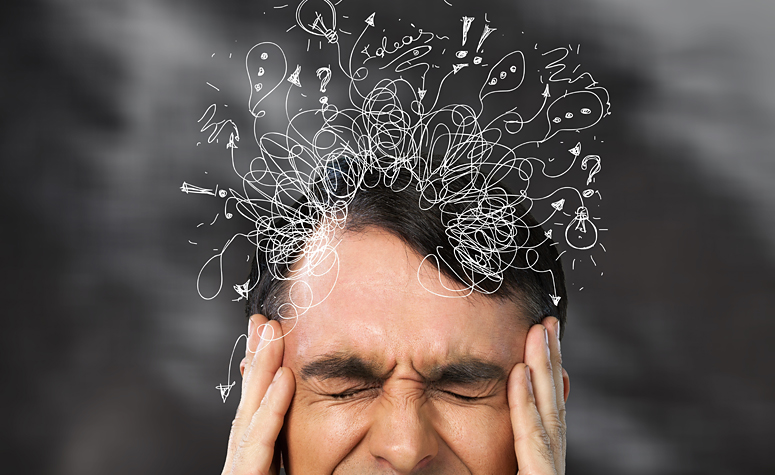Understanding and Treating ADHD
Attention deficit hyperactivity disorder, known colloquially as ADHD, is marked by heightened energy levels, impulsivity, and difficulties in maintaining concentration. ADHD can affect both adults and children, impacting not just the cognitive functions but also influencing the behavioural aspects of those affected. In children, this condition may also influence a child’s actions and speech, hence affecting their academic performance, social interactions, and overall development.
The ADHD treatment approach varies based on the age of diagnosis and the overall severity of the patient’s symptoms. Following an ADHD assessment, a qualified mental health professional will work towards developing and then suggesting a particular treatment plan which is best suited for the individual.

What are Adult ADHD symptoms?
While symptoms of ADHD usually start in early childhood, it’s possible for an adult with ADHD to go undiagnosed for many years. Adults may experience subtler symptoms than children, some of which can be:
- Struggling to stay organised
A person with ADHD can find it difficult to manage their responsibilities, so they may not keep to deadlines or pay their bills on time. They may also struggle to be punctual for diarised meetings or social plans. They are often late for appointments and in some cases, are too early for appointments due to worries of missing the appointment. - Prioritising tasks
They may focus on smaller and easier tasks rather than important, lengthier projects. For example, they may spend a morning answering emails or voicemails rather than getting on with a longer, more significant piece of work. - Procrastination
Difficult and complex tasks are put off. At times, a person with ADHD will work all night to meet a deadline, while many tasks are never completed. - Difficulties focusing
They may find it hard to concentrate in a busy or noisy environment and struggle to stay focused during long meetings or appointments. They may get easily distracted by sounds, moving objects and activities outside the window, and struggle to get their focus back to the task at hand. - Forgetfulness
A person with ADHD can have difficulties with their short term memory. They may forget social plans, overlook parts of a task or forget to run errands. They may also frequently misplace things like their car keys or house keys. - Restlessness
While an adult with ADHD may not be as hyperactive as a child, they might find it difficult to relax. They may struggle to sit in one place without being fidgety, or their mind racing with thoughts or other activities to do. - Speaking out of turn, interrupting others and finding it difficult to keep quiet
They may seem to have difficulties listening in conversations or engaging in meaningful conversation that requires focus and attention. - Mood swings, irritability and extreme impatience
As they have difficulties controlling their emotions, a person’s mood can flare up and then subside rapidly. - Struggling to cope with stress
The ongoing challenges of ADHD can be so overwhelming without the correct treatment that it can cause a person to suffer from constant stress. - Taking risks and having a reduced sense of danger
These can range from showing up late to important appointments, to dangerous driving and substance abuse.
While most people will struggle with some of these symptoms, if they are ongoing, persistent, causing problems in everyday life and can be traced back to childhood, this could be a sign of ADHD.
The signs of ADHD in children can vary slightly compared to adults, which is why it’s not always noticeable during childhood and why many people get an adult diagnosis.

How is ADHD Treated?
Currently, there is no single and overreaching cure for ADHD. However, at our facilities, we offer inpatient, day care, and outpatient treatment programmes that may aid children, teenagers, and adults struggling with this condition in managing their symptoms.
Utilising a wide range of evidence-based treatment methods, our experts devise custom treatment plans for every individual patient. In the vast majority of cases, these programmes comprise medications, family therapy, group therapy sessions, and cognitive behavioural therapy (CBT). Furthermore, our specialists may also pair them with medications for other correlated issues based on the patient’s age and needs. Naturally, children diagnosed with ADHD will often receive slightly altered treatment plans when compared to adults.
Therapy for ADHD
For the majority of people suffering with symptoms of ADHD, through counselling and therapy they are able to make sense of their experiences and learn about coping strategies to help them navigate their ADHD. Through counselling, people suffering from ADHD can unload their worries and find relief in understanding themselves.
Cognitive behavioural therapy (CBT)
Cognitive behavioural therapy (CBT) is a talk-based method that aims to teach patients how to better manage their behaviours and thought patterns. Depending on their age, this treatment technique can be an excellent option for ADHD patients.
Put simply, CBT may help individuals alter their negative thought patterns associated with ADHD, effectively making their symptoms less severe. Since it is talk-based, this method is often not suitable for young children but can be quite successful with teenagers and adults.
- Family therapy
The focus of family therapy is helping this micro-community acknowledge and understand the effects of ADHD on the patient and those around them. Firstly, this type of therapy teaches family members how ADHD affects their loved ones. Just as importantly, this method aims to show the patient how their behaviours are impacting their family.
In the case of adults, family therapy often comprises marriage counselling, where both sides discuss their respective roles and responsibilities. Typically, the aim is to improve their communication and equip them with tools needed to overcome difficult challenges productively. Since ADHD symptoms in men and women may vary, this therapy method is essential for parties to understand each other better.
- ADHD Coaching
ADHD coaching focuses on utilising a patient’s individual strengths to help them cope with their symptoms. It is one of the most effective techniques for overcoming the everyday challenges that life with ADHD often brings.

How is ADHD Diagnosed?
Customarily, diagnosing ADHD is a challenging and can often be a prolonged process. As a consequence, only those with the utmost experience in this area can be responsible for one’s assessment.
Prior to testing, both the prospective patient and their family member, close friend, or partner have to complete a questionnaire about the person who may be struggling with ADHD and their behaviours. This questionnaire usually includes information about the person’s daily routines, as well as any tasks or responsibilities they may struggle with.
Once filled out, both survey forms are then analysed by a qualified mental health professional. A psychiatric assessment follows, which often consists of two separate meetings with the patient to ensure an accurate diagnosis.
Generally, this assessment is equally focused on the persons school years and early adulthood. Specialists ask questions that help them better understand how the individual processes emotions and events, how they function on a daily basis, and how their symptoms affect them.

Sometimes the smallest step in the right direction
ends up being the biggest step of your life
Tiptoe if you must, but take the step
ADHD Medication
Based on an individual’s symptoms and their severity, specialists may recommend particular ADHD medications. These medications can usually be separated into two categories — stimulants and non-stimulants. In both cases, the medicine affects the patient’s frontal lobes by facilitating the production of dopamine.
Stimulant ADHD medications include Lisdexamfetamine (Elvanse), Dexamfetamine (Dexedrine), and Methylphenidate (Ritalin, Medikinet, Equasym, and Concerta, among others). Our specialists carefully select the appropriate type of medication during the treatment plan development. Nevertheless, all stimulants share similar effects, with the initial benefits showing in a matter of weeks. It is important to note that they are classified as controlled substances, meaning that they are often misused. However, when taken under the care of an ADHD specialist, these medications are considered to be perfectly safe for consumption.
In instances when stimulant medications do not produce the desired results or cause adverse side effects, experts recommend alternatives, such as non-stimulants, like Atomoxetine. This medication is also the preferred option for those who struggle with anxiety or are predisposed to addiction. The benefits of Atomoxetine typically take more than a couple of weeks to show, and patients must take it every day. If necessary, healthcare professionals may prescribe other types of medications besides Atomoxetine, though it is not done frequently.
When patients first begin taking any medication, specialists usually opt for the lowest doses possible. Then, they gradually increase the dosage over time to ensure the patient reaps the most benefits without ingesting too much of the drug. In the vast majority of cases, at least three appointments and dose adjustments are necessary to establish the most effective treatment plan.
What medication is used to treat ADHD?
When combined with talk-based therapy, ADHD medications can help patients concentrate more easily and feel more tranquil, as well as improve their attention span.
Below, is a list of the most commonly used ADHD medications:
- Methylphenidate
Addresses the part of the brain responsible for attention and overall behaviour; it is the most commonly prescribed drug for ADHD patients. - Lisdexamfetamine
An effective option for children above the age of six, as well as teens and adults. - Dexamfetamine
Similar to Methylphenidate and may be taken more than once a day. - Guanfacine
Utilised for reducing blood pressure and improving attention in children and teens. - Atomoxetine
Belongs to the group of selective noradrenaline reuptake inhibitors (SNRIs), which have been proven to help with impulsivity and poor concentration.

What Causes ADHD?
Although the precise cause of ADHD remains elusive, various factors are purported to play a contributory role in its development. These factors include:
Genetics
Research shows that those who have ADHD in their family history may be more predisposed to be diagnosed as well. However, the condition is too complex to be associated with a unique genetic fault.
Brain structure
Studies suggest that ADHD may also be linked to an individual’s specific brain structure. Namely, the brains of children with ADHD often mature an average of two to three years later than those of children without the condition.
Birth and pregnancy complications
Lastly, the conditions and circumstances surrounding a child’s birth may also have a significant role in the development of ADHD. For instance, low birth weight and premature birth have both been linked to ADHD, as well as substance abuse during pregnancy.
Regardless of how frightening your symptoms are, you are never alone in your struggle. Expert assistance is only a call or a visit away at one of our treatment centres.
FREE ADHD Assessment
If your or a loved one are struggling with ADHD, we understand the challenges you’re facing and we’re here to offer compassionate help.
Our highly trained advisers are available to speak to you right away, simply call 0808 252 3379 today.
We can discuss your concerns in complete confidence, explore the options for treatment, and help you to understand what will work best for you.
We’ll also help you to book your free ADHD assessment there and then, with appointments usually available within only a few days.
We understand that taking the first step can be the most difficult, but we’re here to support – with no pressure or judgement.
Professional and compassionate help is just a phone call or click away.




